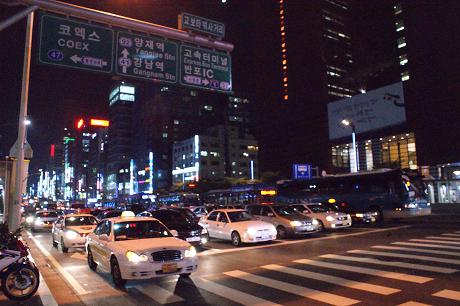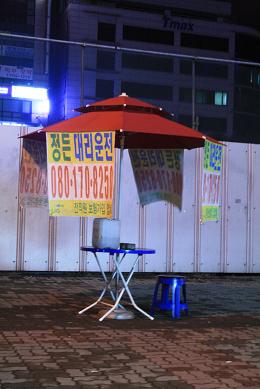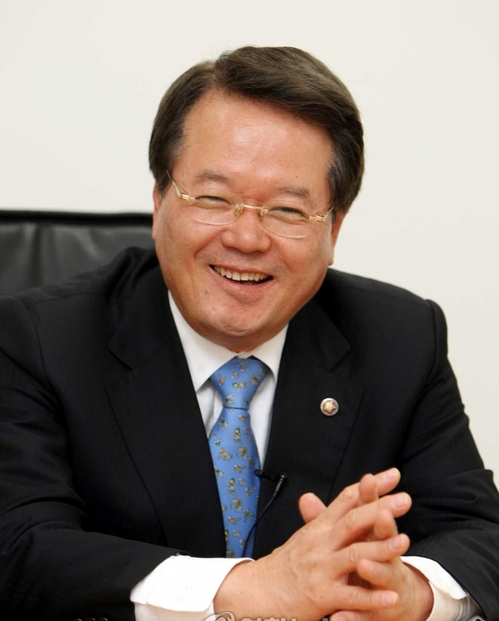The hardships and injustice they drive through
 |
DRINKING ALCOHOLIC beverages is detrimental to safe driving. To prevent drunk driving, the United States first invented the "Designated Driver" program, which encouraged people's selecting someone to remain sober among friends. The designated driver was responsible to abstain from drinking alcohol, and drive everyone home safely. A similar campaign against drunk driving started in Korea; however, designated drivers were not only strangers but also paid for their services. Nationally, there are over 120,000 people working as paid designated drivers, serving over 700,000 people daily. Despite the growing business and positive outcomes of preventing alcohol related accidents, the drivers suffer from poor working conditions.
Reality of paid designated drivers
Since the introduction of paid designated drivers in 1997, the business has grown to become a professional, national-wide system. Despite the multiplying number of designated driving companies, the drivers's working conditions have not improved. To start with, these drivers suffer from physical exhaustion. They are on call from 8 p.m. to 4 a.m. waiting to drive drunk customers home. Because most of these night drivers have another day job but work at night to earn extra money, they usually suffer from sleeping disorder, extreme fatigue and even night blindness. However, the job gets much stressful since they are often confronted with unfriendly drunk customers. "Some customers are so drunk that they yell and swear at me in the way to home. Usually, I put up and try to understand them; but as a human, sometimes it is unbearable," says Mr. Jung, who has been working as a paid designated driver for one year. Sometimes, the drivers become the victim of violence. "There are uncountable numbers of assaults of customers towards drivers that are not reported to the public. Since our drivers need money urgently, we tend to settle the case with a little money. The police investigation would take forever, and we cannot afford the time and money on that," says Mr. Lee, who has been working for 10 years.
 |
| ▲Paid designated drivers are usually on standby in tents waiting for calls. |
The real reasons they suffer
Although the job is tough enough, the real difficulty of their job is the absurd payment they get. According to the 2008 annual report of the Ministry of Labor, these designated drivers' average daily wage is ₩30,000, while they average 12 hours working per day. In addition, the company claims 20~30% for commission. After they deduct the transportation fees to get to the customers, they hardly earn over ₩1 million a month. Especially these days, the reward is very weak in this business; the market is so saturated that there is even a rate competition.
Moreover, the drivers are recognized legally as "self-employed," which liberates the company from any obligation under the Labor Standards Law. This means companies do not have to pay designated drivers minimum wage or an hourly wage. Without a base salary, paid designated drivers have to work all night in order to earn an unguaranteed amount of money. They are also not provided with the basic benefits such as industrial accident insurance or national health insurance.
To make matters worse, they are sometimes treated as criminals because there have been so many robbers who impersonate the paid designated drivers. Although the companies try to provide the text message that contains the driver's ID, pretending to be the designated driver sent from the company is not hard. Since there are no required enlisting system or verification of these drivers, people cannot trust them entirely, which makes their business difficult to be operated without doubts and concerns.
Solutions to improve their status
Making a healthy environment for the paid designated drivers can be resolved by law revisions. Oct. 25, 2009, a member of the National Assembly, Chung Ui-wha proposed a special law that improves paid designated drivers' working conditions. The law aims to guarantee basic safety insurance and minimum wage for these people and their households. However, this attempt seems not enough. According to Lee Chul-soo (Prof., Dept. of Law, Seoul National Univ.), they have a just right to be recognized as employees that guarantees basic working conditions. "All workers that are 'subordinated' by the company should be recognized as employees, who can be protected under the Labor Standard Law. Since they are not registered as individuals and they have to get orders from the companies, they are apparently employees," says Prof. Lee.
To make this happen, in the short term, government recognition of a legal representative for designated drivers is needed. "Finding legal representative that can suggest the guidelines of minimum wages and applications of insurance can be a giant step towards improving working conditions. It can guarantee the safety of both of the customers and the drivers," says Lee Chang-seok (Director, Korea Driving Service Society). In the long term, we have to constantly endeavor to make much fundamental legal changes on labor markets. We students need to become more interested in these kinds of jobs and should criticize such unfair application of legal protocols. There are a few jobs like paid designated drivers that are considered as "self-employment," even though these independent workers are clearly submissive to companies. Since the basic rights of the Labor Standard Act can only apply to the "employees," the effort to extend the coverage of the Act should be continued.
* * *
Paid designated drivers are not only providing a service but are saving the lives of many. The number of alcohol related accidents per number of cars has decreased since the driving business started. In 2005, when the designated drivers surged, the driving accidents seemed to fall. These drivers work hard to earn money to support their families, at the same time providing a safety service that benefits our society. Social protection umbrellas are the least we can provide for them. The status of these drivers could be improved by policy changes and people's attention to the unfair treatment. During this global economic slowdown, we need to look after people who need help.
Special interview with Assemblyman Chung Ui-wha

As a member of the National Assembly, Chung is currently focusing on submitting a bill to establish rules for safer working conditions. The contents of the bill have not been finalized yet, however, it can be a giant step towards a healthy environment for paid designated drivers.
Annals: What are the main points of the bill that you proposed in the National Assembly in order to enhance the working conditions of paid designated drivers?
The bill that I proposed has three main points. First is to introduce the license system of the paid designated drivers. The second point is to establish a training system that ensures the driver? ability to drive safely. Finally there is a provision to obligate the designated drivers to get insurance. In this way, not only can customers be protected from by crimes impersonated designated drivers but also the drivers?wages can be guaranteed at a certain level.

